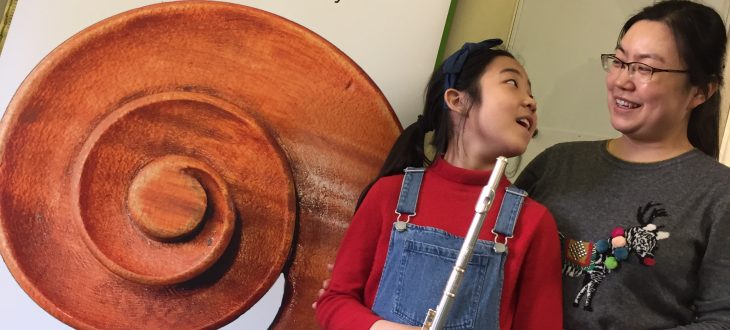Just like with any type of learning, helping your child make good progress with their chosen musical instrument is not about coercion. Children learn better and absorb more information when they are having fun. So how can you create a positive association with their music practice so they make wonderful progress? Follow these three steps.
Get Clear on Reasons for Practising
Encouraging your child to practise with their musical instrument is not about ‘making’ them get better at it. Maybe you treat it as fun and quality time together. Maybe you talk to them about how playing music can help them build their confidence and express themselves. Focus on the positives of practice, don’t treat it like a chore.
Create a routine
Putting a routine in place for your child’s music practice will help them develop good habits. Think about the other routines they have, like brushing their teeth before bed, or doing their homework after school; music practice should be treated the same.
Routine starts with you, the parents. Decide on a time, like before school or immediately after, for example, practise for 10 minutes after school Monday to Friday. In the school holidays, it may be every morning after breakfast. Choose what works for them and for you. This is important, because deciding how much time you have as a parent to get involved will help them develop a good routine.
Scenario #1 – If you have 5-10 minutes a day to help them practise:
Be in the same room as your child when it’s Practice Time. You don’t need to teach your child. Simply open up the Practice Notebook and ask your child to refer to their Practice Notes. If you are an extremely busy parent, you may be working on the computer, texting, or reading at the same time. This is fine as long as you’re in a quiet space and you’re not doing something like talking on the phone, for example. At the end of 5 minutes, you may leave your child to practise on their own.
Scenario #2 – If you have 10 – 20 minutes a day to help them practise:
If you can be attentive during the Practice Time, your child will be more focused and make more progress. Open up the Practice Notebook and ask your child to follow the items in the Practice Notes. Don’t teach or correct your child. Simply offer them positive encouragement and say ‘well done’ for any work completed.
Avoid these things
So many children become unmotivated and resistant to practising. This is often because:
• They are constantly told that their practice is not enough;
• They feel under pressure to practise for longer than they can manage;
• They get bored;
• They don’t know what to practise.
If your child has lost their motivation to practise with their musical instrument, my advice is:
• Always say ‘well done for doing your practice today’ when your child has done their practice. Don’t express dissatisfaction if they have not done their practice. Stay focused on the positive. Remember, it’s not about ‘making’ them learn.
• Remember that showing up to Practice Time is much more important than how long your child practises.
• Ask your child to practise for about 10 minutes each day. Having to practise for too long and beyond their attention span will lead to boredom and loss of motivation.
• Refer to your child’s Practice Notes so that they know what to practise.
If your child has a positive association with their Music Practice and they think of practising with you as fun parent and child time together, they are more likely to develop good practice habits, get into a regular routine, and make wonderful progress with their musical instrument.
Got a question about music practice? Email joolee@lindy-jazz.co.uk.
